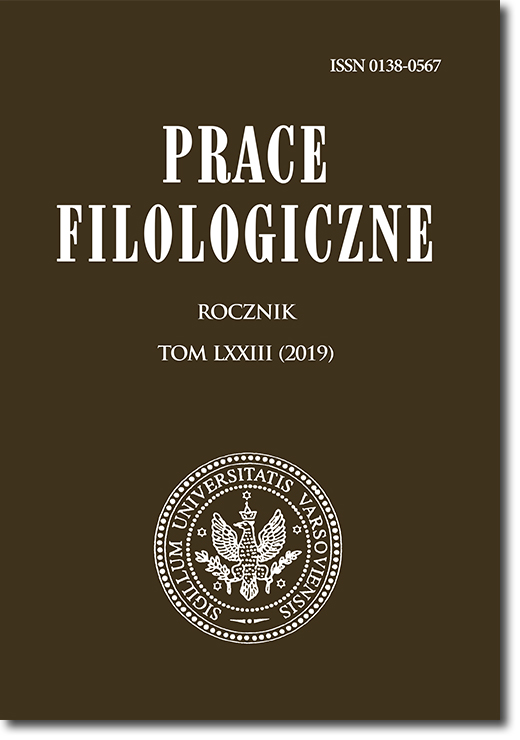„Zvířecí” výrazy pro lidský svět. Opozice člověk – zvíře v češtiněe
„Animal” Words for Human World. Opposition Man – Animal in the Czech Language
Author(s): Lucie ŠťastnáSubject(s): Theoretical Linguistics, Applied Linguistics
Published by: Wydział Polonistyki Uniwersytetu Warszawskiego
Keywords: animal; man; cognitive linguistics; ethnolinguistics; anthropocentrism; opposition
Summary/Abstract: The world of animals is always viewed from human perspective, which makes both worlds interconnected and inseparable. This paper aims to show some consequences of anthropocentrism in the Czech language. It is focused especially on words, which connect both worlds, because in Czech there often exist at least two series of different units – for a man and for an animal. We can use different words e.g. for parts of the body (head, mouth X snout, muzzle, beak), for various activities (eat X feed), sounds (speak X croak, bleat, cluck) etc. If we use this primarily „animal” words about a man it is usually connected with very negative valuation. The paper is based mainly on the analysis of Czech dictionaries, as well as examples in folk literature.
Journal: Prace Filologiczne
- Issue Year: 2019
- Issue No: 73
- Page Range: 481-494
- Page Count: 14
- Language: Czech

